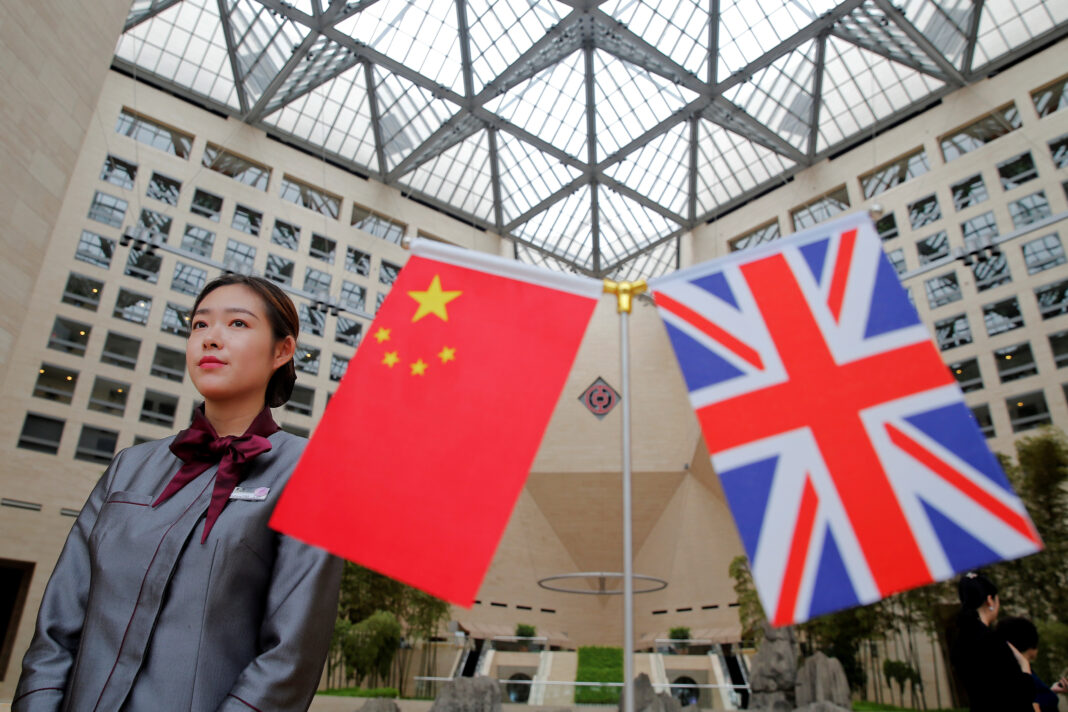A majority of British companies are taking a “wait and see approach” on new investments in China amid their pessimism hitting record levels, according to the British Chamber of Commerce in China.
Increasingly strained geopolitical relationships, a slowing global economy, growing talk of self-sufficiency, and shifting investor perceptions were the top challenges clouding the business outlook, the chamber’s annual position paper released on Tuesday said.
“British companies are willing and want to invest in China…there is, however, some uncertainty around that and that’s where the survey results we have give us a little cause for concern,” Julian MacCormac, chair of the British Chamber, told reporters in Beijing.
“Seventy percent of companies are saying it is too early to make these long term commitments to the China market,” he added.
AstraZeneca, BP, Jaguar Land Rover and Shell are among the members of the chamber.
The chamber’s findings, which were based on the views of members late last year, revealed that 42 per cent of the companies were pessimistic about their prospects in China. That number had never crossed single-digits before, it said.
A follow-up, separate survey in April after China removed its COVID curbs found that number had gone down to 8 per cent, it said.
Foreign direct investment (FDI) into China has slowed substantially since the country abandoned its strict COVID-19 curbs late last year, with dollar-denominated FDI down 3.3 per cent in January-April compared with the same period last year.
Trade between the UK and China was worth 111 billion pounds ($140 billion) last year, according to the British National Bureau of Statistics, making China the UK’s fourth largest trading partner.
The British Chamber called on the authorities in China to provide greater clarity on how new regulations will be implemented, particularly in data security and taxation, so that there are fewer “grey areas”.
“When something happens that isn’t necessarily explained, and where businesses are not consulted and it’s not clear where the boundaries are in terms of how a company operates, it creates uncertainty,” MacCormac said, in response to a question on recent raids by Chinese authorities of foreign due diligence firms.
channelnewsasia.com

